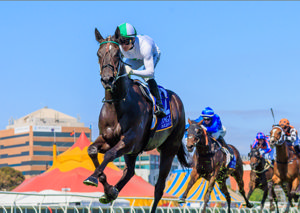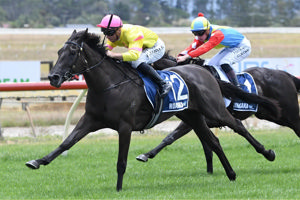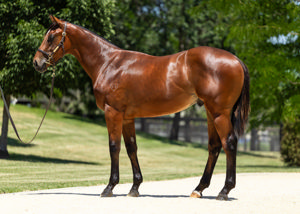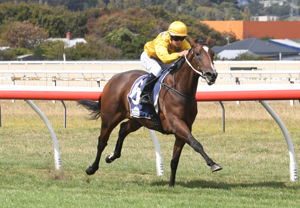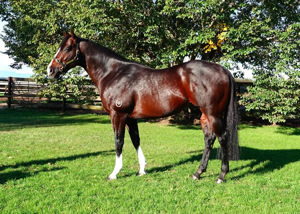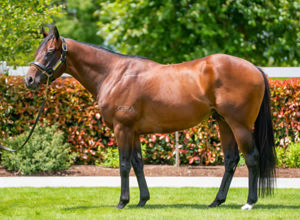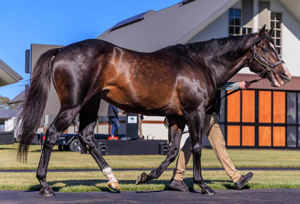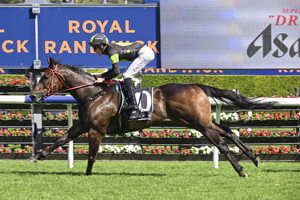With two stakes-winners among his three winners at Ascot on Saturday, Playing God is in rare air this season with his five individual stakes-winners of seven stakes races putting him in exulted company.
Only I Am Invincible and Zoustar can top that, which makes it more puzzling why the son of Blackfriars was relatively shunned in his first four seasons.
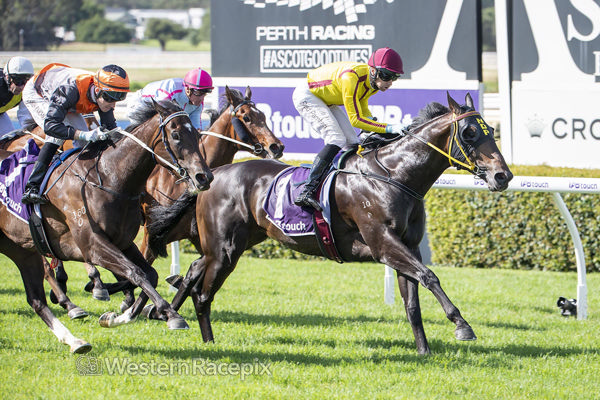
A racehorse of the highest class, Playing God won the Group 1 Kingston Town Classic twice. He was not just a home hero, with placings in the VRC Australian Cup, Australian Guineas, and Turnbull Stakes.
He covered 49 mares in his first season at a fee of $6,600, leaving 37 foals, five of which became stakes-winners.
Despite a drop in fee to $4,400, Playing God left 29 foals from the 45 mares served in season two. Among the 29 foals was Playing God’s first Group 1 winner, the top-class filly Kay Cee.
In season three, Playing God had just 19 foals from 33 mares served, which improved to 36 foals from 57 mares covered in 2017.
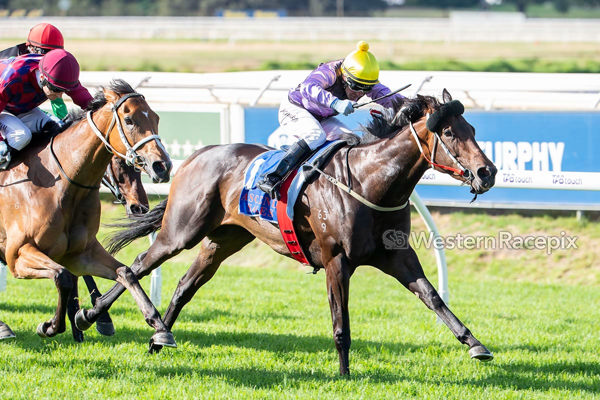
By then, he was on his way, and the biggest beneficiary was the Atwell family’s Darling View Thoroughbreds, which stood Playing God for the first time in 2020 following the Mungrup Stud dispersal.
After standing at $11,000 in 2018 and 2019, the fee was increased to $13,200 in 2020, $16,500 in 2021, and $27,500 in 2022 when covering a career-high 132 mares.
The son of Blackfriars is winding down his 10th season at stud at a fee of $33,000.
It was business as usual on Saturday, with the 3-year-old colt Investmentstrategy adding the Listed Sir Ernest Lee-Steere Classic to his win in the Listed Fairetha Stakes.
The 4-year-old mare Baby Paris returned to form for an all-the-way triumph in the Listed Ascend Trophies - Jungle Dawn Classic.
Investmentstrategy and Baby Paris have banked over $1,000,000 between them.

